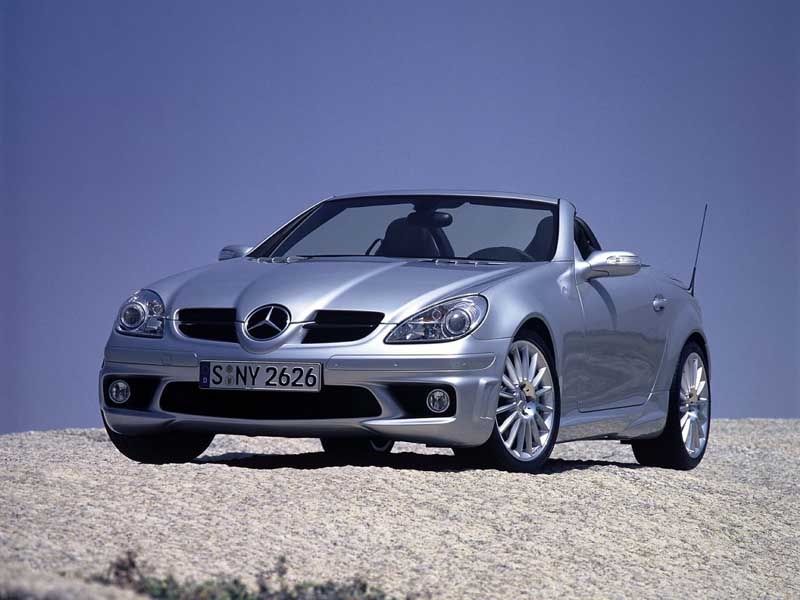
In no way does this make me exceptional, but I’ve reached a point in life during which I am consistently reminded about my age. (To be exceptional, I’d have to be able to fondly recall Adrian Dantley with Yasser Arafat while in an Upper West Side synagogue.)

I refer to childhood touchstones that elicit blank stares from my law-school classmates, among whom important things such as Voltron do not resonate. Playing sports for too long makes my right knee hurt. My favorite music was released about fifteen years ago, when I was in high school. Prospective employers ask me why I’ve already switched careers twice. (To become NBA commissioner. Duh.) Almost all of my long-time friends have recently gotten engaged, married, gay, or gay and married. I am 28 years old.
My early and mid twenties were spent obstinately trying to prevent this time from arriving. I would bristle if anyone referred to me as an adult and cite adolescent children as my emotional peers. A birthday was the most depressing moment of any year. All the while, I quietly conceded the inevitability of aging, and even regarded myself as magnanimous when I realized, early last fall, that upon leaving behind a developed adult life in New York for a second try at high school in Missouri, I was happy to be a grown-ass man. It was the sort of calm revelation that surprises before instantly settling as obvious. I parked a car which I leased in my own name, walked into an apartment fully decorated with furniture I assembled on my own, and willingly opened a book about contracts so that I might get ahead. Measured risk, self-sufficiency, responsible choices--I had arrived.
It’s not all cardigan sweaters, warm milk, and world weariness, of course. I exuberantly run around school in a unicorn shirt on days when my flag football team has a game. I like going to Olive Garden’s never-ending-pasta-bowl nights and telling dirty jokes with the waitresses. The flag of piracy still flies from my mast. And let’s be real: 28 isn’t 78; that’s a destination not even on the horizon.

Romanticizing youth and mourning age are equally easy. Appreciating an ongoing transformation is somewhat harder. That’s why I am taking this moment to welcome back our beloved Association with my enthusiasm, normally so loudly pronounced, somewhat muted by reflection.
The build up to this season has been a quiet time for me. Entrenched stars of the new establishment--LeBron, and Dwyane, and Chris, and Dwight--are thrilling. For a number of them, the questions focus on when they will cross the threshold of all-time greatness. The excitement they’ll offer is assured. Yet the ascendancy (if they even remain ascendant) of these post post-Jordan saviors necessarily implies that they have passed by their predecessors. Predecessors with whose legacy the public remains uneasy, and who will collectively be remembered by history for having carried the burden of redemption after Michael. With this class of tortured heroes in mind, opening night is shaping up to resemble a reunion down the line more than a first day of classes. A generation that defined not only the NBA’s post-Jordan growth but also my own personal transition is coming to its end. This year feels like a gathering valedictory.

There are the accomplished folks, those who adhered to their stated intentions and are celebrated for making it: Tim, now hobbling more noticeably but not quite ready to submit; Kevin, whose protestations to the contrary cannot fully mask the wear and tear; Kobe, with nothing left to prove; Jason, timeless in his own way. Perhaps Shaq (though as the years accumulate, he increasingly seems like his own era, in some ways, both for chronological and stylistic reasons). There are the fuck ups, too. The kids who squandered their potential or never really had any. Some of them won’t even show: Glenn, Keith, Tim, Ron, Steph.
And then there are so many others whose stories defy neat categorization and whose appearances at the function engender polite admiration but also unavoidable disappointment. Think of the ambivalence, the confusion, the mixtures of conditional praise we’ll conjure as we see Ray Ray, Tracy, and Paul again. Or Grant, Sheed, J.O., Vince, and Chauncey. Anyone know if Antoine and Stack are coming? And, of course, Allen. A.I. will be the dude who could show up in any condition, and it wouldn’t be surprising after all that’s been done, seen, and heard.
We are about to embark upon an era’s denouement. Preseason forecasts have made a similar declaration in recent years, but this season is different. To start, the 2009 playoffs were almost exclusively owned by the next generation. Even the old-NBA Celtics were dominated by their emerging point guard, he of this burgeoning oligarchy. Old-NBA Kobe Bryant won, but he played for history. What greater validation could there have been than the immediate, reflexive glances backwards? The Lakers’ title, won with Pau and Bynum, may have portended continued success, but more than anything, it was about Bryant’s legacy.
Moreover, the NBA players drafted in the mid and late nineties have themselves conceded that this will be the end. Roscoe went to Boston to mount a final championship push before KG’s knee fully gives out and injuries and age weather Ray and Paul Pierce to the point of dullness. The Spurs added Richard Jefferson because biding time and playing for the tomorrow of 2010 is apparently not a luxury which Tim Duncan can afford. Vince has embraced third-option status on a Magic team that is almost entirely powered by an engine of the new NBA. Allen Iverson has devolved into a Memphis sideshow attraction. Elsewhere, older stars of the soon bygone era are reliant upon their younger teammates: Chauncey needs Carmelo; Nash and Grant Hill need Amare; Jermaine needs Dwyane; Tracy needs to retire; Shawn Respert needs food. Even Shaq--Shaquille O’Neal!--needs no less than LeBron James.

So I have reached yet another reminder of my age. The suddenly old guard begins to fade along with my youth; the league evolves along with my fan perspective.
Kevin Garnett was drafted during the summer before I entered ninth grade. I was thirteen, and I vividly remember running to the telephone at summer camp to discuss the draft with my father. As any barely pubescent, aspiring NBA savant might have, I diligently regurgitated everything I’d read in the newspaper as though they were my own opinions. “Garnett’s supposed to be really good, and really versatile,” I said. “He’s straight from high school, too. That’s young!” I exclaimed, a full four years away from being draft eligible myself (you know, had I been a better player). I didn’t know it at the time, but Garnett’s arc as a player, like the larger narrative about his generation, would go on to mirror my fan identity.
Weaned on an Association dominated by Jordan and populated by the legendary bumper crop of hall-of-fame players who debuted in the middle and late 80s, as an adolescent I greeted the NBA with wonderment and an expectation of excellence. I assumed that the league’s trajectory would remain on the growth course it enjoyed as my fan consciousness emerged during my formative years.
Over time, my evergreen enthusiasm for the sport mixed with an understanding of the athletic, social, cultural, and market forces surrounding the league. It was natural; I grew up. I remained committed, but I steadily understood a much larger experience that accounted for everything else in the basketball realm. For instance, adoring the NBA was not universal, I learned. Plenty of fans were disenchanted, frustrated, indifferent. Likewise, my take on player transactions, the sport’s mechanics (don’t bring the ball down, big man!), and the business of basketball all grew deeper, adding layers sometimes in conflict.
The NBA is no less fun for me now. I continue to hoot and holler at my television, or evangelize on Twitter about the glory of Chris Douglas-Roberts. But I also see a broader image than the one to which I clung as a child. The officiating can be awful. The sneakers aren’t what they once were. The access to players is much better. And so forth. A panoramic approach affords the opportunity to dwell upon what’s passing while still being excited about what remains going forward.

It has been no different for the generation we will soon lose. Folks looked to Garnett and his peers to continue the work Michael et al. started, growing the sport’s popularity and elevating its execution. The “Next Jordan” basketball hype that seemed to swirl endlessly alongside the manic search for expanding revenue asked this new class of NBA players to meet an unrealistic standard. When stories about prep-to-pros players and increasing athleticism grew stale, when it became clear that Michael was an exception and not a new rule, the narrative twisted. Over time, it cast KG and those of his era as inadequate, no matter how intrinsically great the accomplishments.
Arguing about whether the characterization of inadequacy is just or not has grown tedious. Without judgment, we can likely all agree that the Kevins, the Tims, and also the Mercers, came to the NBA under the weight of great expectations, carved out an epoch with many more shades of gray than expected, and now begin their departure worn by highs and lows. As I said, this progression isn’t so different from that of the innocent fan whose appreciation and cynicism both grow over time, leaving him free to relish the good and understand the bad.
But, for being a vessel; for being a companion; for living our progress--for these things, this group of departing players deserves our attention. These players facilitated growth, served as reliable friends in a way, and were, in part, projections of fandom. They are less heroic but more human. Accordingly, those of my age group surely must take a moment as the NBA again approaches to consider fully what it means for the era of our definition to be winding down. The trumpets heralding a new regal class will still be echoing when we finish.















No comments:
Post a Comment